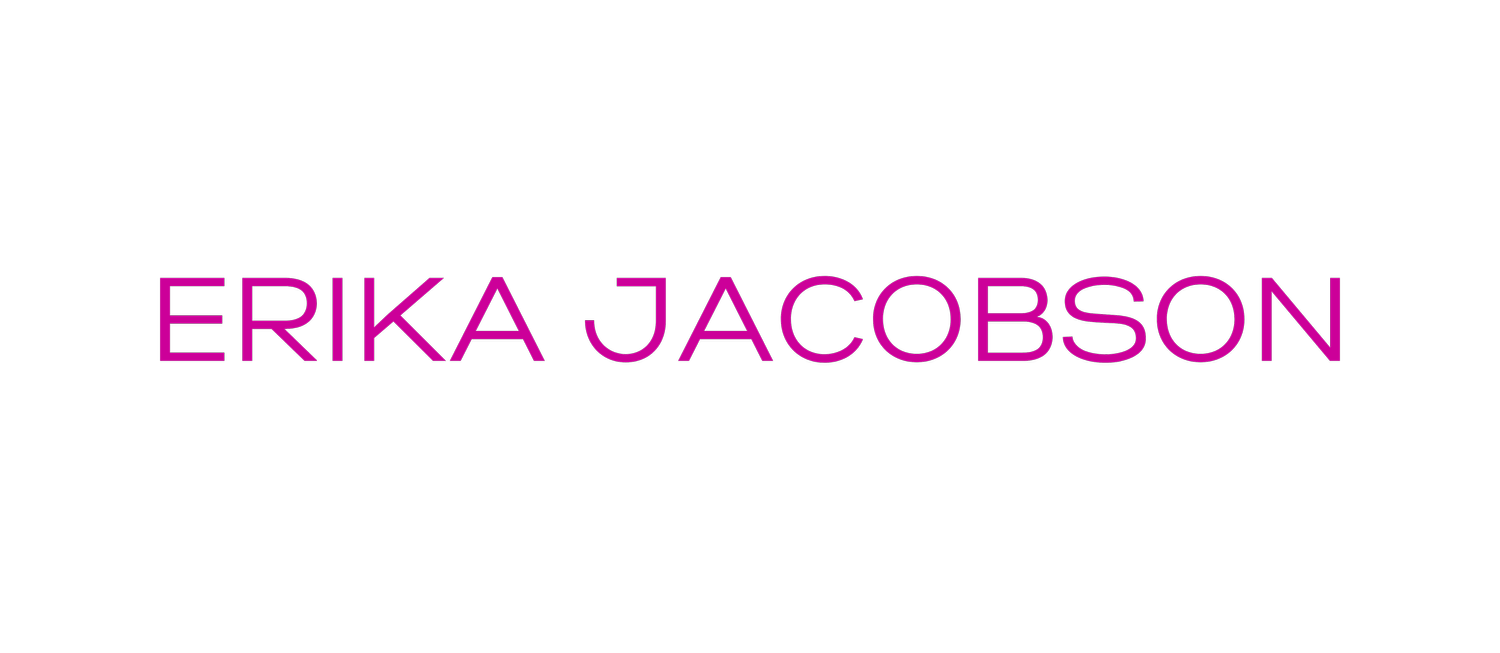4 Faces of Impostor Syndrome and some Antidotes
Erika giving presenting in front of more than 500 educators and administrators.
By Dr Erika Jacobson
“I’m qualified, I’m experienced, and I have everything I need for this role AND I am doing a good job …why do I feel like an impostor?”
Can you relate?
I remember the first time I went to a conference after completing my Ph.D. It was in Auckland, New Zealand and there was a keynote by an author whose work on applied theatre practices I had found pivotal and whose book I had in my bag.
I had been to many conferences before and shared dozens of presentations about my research, methodologies, case studies, even my failings. Mostly, I had shared passionately, and I had spoken confidently.
This time, however, now that I was officially doctor Jacobson; now that I had officially completed and published a thesis with almost 80,000 words and several chapters; now that specialist international examiners and leaders in their field had approved and passed my work; now, I was mortified.
My nerves were unsettled and I felt like foregoing my session and staying in the back of the room watching, listening, and staying small.
After her talk, the author I mentioned above, walked past me in the aisle. I found the courage to say hi and tell her that I loved her book. She kindly asked about me and I told her I had just been awarded my doctorate.
“Have you stopped feeling like an impostor yet?” she asked with a knowing, wry smile.
I almost started crying.
She had hit the nail on the head. I found myself suddenly understanding or at least having a label for what I was feeling and although I did not understand why, naming it and seeing it, helped me to start a process of overcoming it.
So what is impostor syndrome?
First identified in 1978, by psychologists Clance and Imes, impostor syndrome seems to affect high-achieving people who experience constant self-doubt and have trouble attributing their success to their own competencies and effort. They dismiss any accomplishments and believe that any time now they are going to be exposed for the frauds they are.
At the time they focused mainly on women and wrote that “despite outstanding academic and professional accomplishments, women who experience the imposter phenomenon persist in believing that they are really not bright and have fooled anyone who thinks otherwise.”
Research has shown that impostor syndrome is as prevalent in highly accomplished academics, as it is in acclaimed entrepreneurs and performers; in highly specialised clinicians as in top-achieving C-suite executives. Impostor syndrome is a real thing.
Reading about it in more depth I was not surprised to find out that it can manifest itself in many ways, but these are the most common:
1. You turn into a self-critical perfectionist
You think that perfection is the only way you can show you are good at anything and because there is no such thing as perfection, you are always disappointed and critical of yourself, but also of others.
In addition, because you know what you can do well, and you don’t want to ‘fail’ by doing something a different or ‘new’ way that could possibly leave you ‘exposed’ as being ‘incapable’, you tend to not try new ways of tackling problems or tasks.
ANTIDOTE
Always remember that there is no such thing as perfection. It’s impossible to achieve and the act of trying to perform perfection kills creativity and innovation. This is not an idea; it is a fact.
Stop it! Instead, kill or silence that voice, nip it in the bud, call it out for what it is: FALSE!
In a recent interview on ABC Radio beauty industry leader, Kate Morris, said that she has given her critical voice a name: ‘Kevin’. When she hears that voice in her head she says to herself: that’s just Kevin!
“Zip it Kevin,” she tells that voice. Work on quietening those voices.
2. You become a one-person show
You think that the only way you can show your competence is by doing it all on your own. You are independent and self-reliant and these great qualities have got you far. They are so important to you that if you cannot manage a task by doing it alone then you see yourself as dependent and weak. Asking for help is a sign of failure.
ANTIDOTE
Think of a handful of people you really admire for their achievements. Who are they? Now count the ways in which they could not have done it without the help of others. Seriously count the ways. There is nobody who has not got to where they are without the help, support, contribution, collaboration of others. You may work better solo, but solo only goes so far. Kick that ego in the guts and reach out to others.
3. You start to think you are a superhuman
For you being good means being good at everything! You want to be successful in handling EVERY role in your life.
You want to be the best best friend, the best partner, the best parent, the best employee, the best employer, the best project manager, the best neighbour, the best little athletics parent.
Every role you play deserves a standing ovation and you will work yourself to the bone to achieve this. Exhaustion is a badge of honour that you wear somewhat proudly. And falling short in any of your roles means total failure.
ANTIDOTE
Remember that you are human like everyone else. Trying to be a superhero will simply leave you depressed and deflated, and exhausted.
Sometimes it’s ok to have baked beans on toast instead of French toast, sometimes a simple Power Point instead of Canva Pro has to make do, and you have to ask for an extension like everyone else. Take off the cape and stop pretending you have an invisible plane parked in your garage.
Everyone knows you haven’t and that’s OK!
4. You gotta be the know-it-all
You think that knowledge and skill (tons of it) are what constitutes competence. You might have several degrees and qualifications and there is plenty of evidence all around you confirming that you are indeed full of knowledge and skills, but when you don’t know the answer to something you see yourself as a failure.
You think you have to know EVERYTHING before you can tackle a role or a new project.
ANTIDOTE
Changing how we look at what we are learning and how we are able to deal with problems from a beginner’s perspective is a positive and helpful approach.
In a Harvard Business Review article earlier this year, Oscar-winning actor and activist, Natalie Portman, who also graduated from Harvard University, shared that she has experienced impostor syndrome on many occasions. She suggests that one way of approaching this tendency is to rejoice in being a beginner and remember the advantages of fresh eyes.
In another Harvard article Amantha Imber, from Melbourne-based innovation consultancy Inventium, says to stop trying to be the smartest person in the room. If you really are the smartest person in the room, then just BE the smartest person in the room, you don’t have to act and let everyone know.
How does impostor syndrome impact your life?
If you recognise yourself in any of the above personages, then you tell me. How does it affect you?
Do you work yourself to the bone, become exhausted by putting yourself under impossible deadlines and unsurmountable distress? Do you burn out? Become depressed and anxious?
Do you feel like you do not deserve your achievements? Do you avoid (or procrastinate) on work that will bring limelight? Do you always readily dismiss compliments and accolades? Do you feel joyless and uninspired?
I thought that completing a Ph.D. would make me feel secure and like I belonged in certain discussions and circles. But I was surprised to find out how much it made me feel like I was faking it; that I would never belong. That feeling is gone now and almost 7 years on, I no longer feel out of place in academic circles.
One thing that the process of completing the doctorate has definitely taught me is that there is always so much MORE to learn and to know. We just can’t know it all. So it’s OK to not know the answer to something. Being an expert means being a life-long learner.
“Don’t sweat it,” said the Canadian after signing my book, “we have all felt like that, believe me. You’ll get over it.”
And we can get over it.
Chandra, S., Huebert C. A. Crowley, E. and Das A.M. , 2019, Impostor Syndrome Could It Be Holding You or Your Mentees Back? CHEST 2019; 156 (1):26-32
Clance, P. R., & Imes, S. A. (1978). The imposter phenomenon in high achieving women: Dynamics and therapeutic intervention. Psychotherapy: Theory, Research & Practice, 15 (3), 241–247. https://doi.org/10.1037/h0086006
https://hbr.org/2021/05/how-to-make-friends-with-your-inner-imposter
https://hbr.org/2016/07/everyone-suffers-from-imposter-syndrome-heres-how-to-handle-it






